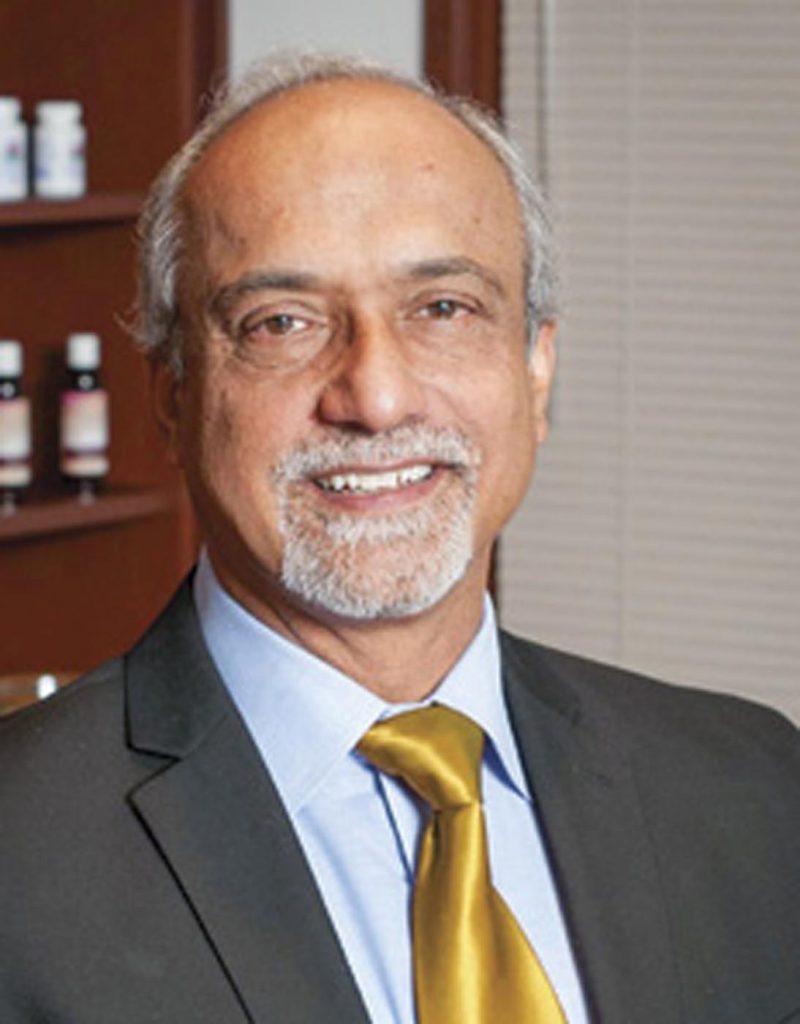Beware the drawbacks of standard treatments for this common ailment
By Dr. Virender Sodhi
What is depression?
Fifteen percent of youth reported feelings of depression in 2022 and it is known that childhood depression left unattended can carry into adulthood. Clinical depression is a serious illness that can affect anybody, including teenagers. It can affect their thoughts, feelings, behavior and overall health. Common symptoms are poor appetite, insomnia or excessive sleep habits, hyperactivity or inactivity, loss of interest or pleasure in usual activities, fatigue, feelings of worthlessness or self-reproach, diminished ability to think or concentrate, and recurrent thoughts of death or suicide.
What causes depression?
Depression can be the result of psychological as well as physiological factors. The predominant psychological theory asserts that depression is the result of habitual feelings of pessimism and hopelessness. It is important to screen for the various simple, organic factors which are known to contribute to depression. These include nutrient deficiency, hypoglycemia (low blood sugar), hypothyroidism (low thyroid function) and drugs—not only prescription and illicit drugs, but also alcohol, caffeine, nicotine, etc. Although it is uncommon to perform lab tests in the diagnosis of depression, I run a thorough blood and urine test for these factors to determine if any of them is causing a chemical imbalance. Additionally, a deficiency of any single nutrient may alter brain function and lead to depression, anxiety and other mental disorders. Particularly essential in this context are vitamin B12, folic acid and other B vitamins, and the omega-3 fatty acids.
What are the standard treatments for depression?
Most people are treated with counseling, or psychotherapy, which is talking about feelings with a trained psychologist who can help one change the relationships, thoughts or behaviors that are causing the depression. Young people should seek help from parents or their school counselor. Parents need to take a very active role by first recognizing that their child is depressed and then providing all the help they can. Some people are helped with counseling and medicine. Doctors routinely prescribe a number of different antidepressant medications. These differ in their side effects and levels of effectiveness. These drugs correct decreased levels of specific neurotransmitters in the blood that can cause or contribute to depression.
Tackling depression
Ayurvedic remedies raise spirits as effectively as drug treatments, without troublesome side effects. For example, along with counseling, supplements of 5-Hydroxytryptophan, St. John’s wort extract, Ashwagandha, Bacopa monnieri and Mucuna pruriens have all been effective in my clinical experience. The chemical 5-Hydroxytryptophan (5-HTP) is the direct precursor to serotonin which correspond to feelings of well being. 5-HTP also causes an increase in levels of endorphins and other neurotransmitters. The typical recommendation is 50 to 100 mg three times daily. Meanwhile, saffron (Crocus sativus) has been studied and found to improve ADHD, anxiety and depressive symptoms as well as insomnia at the relatively low dose of 20mg a day. It can also be incorporated as spice with strong medicinal benefit.
St. John’s wort extract (Hypericum perforatum) is a well-known natural antidepressant. Over thirty double-blind studies involving over 2,000 patients with mild to moderate depression have shown St. John’s wort extract to be effective. However, while it appears to be as effective as conventional antidepressant drugs in mild to moderate depression, it does not appear to be as beneficial in the treatment of severe depression. The dosage for St. John’s wort extract (standardized for hypericin and hyperforin content) is 900 to 1,800 mg daily. In severe cases, St. John’s wort extract can be used safely in combination with 5-HTP.
People taking prescription drugs need to check with their doctor or pharmacist before taking St. John’s wort extract, as it appears to induce enzymes in the liver and gut that detoxify certain drugs. St. John’s wort extract may also potentiate prescription antidepressant and anti-anxiety drugs. While I am of the opinion that St John’s wort and 5-HTP can be combined with low doses of antidepressant medications, I strongly advise it only be done under the strict supervision of a physician.
In several studies, ashwagandha (Withania somnifera), standardized for withanoloids, has shown to be effective in the treatment of anxiety and depression alongside pharmaceutical antidepressants. I recommend 1,000-1,500 mg three times a day. Ashwagandha is a wonderful adaptogen, increasing the body’s resistance to stress, trauma, anxiety and fatigue, and has many other positive health benefits.
Bacopa monnieri, another brain tonic herb, has also shown antidepressant and anti-anxiety effects. Both of these herbs can, however, increase the effects of benzodiazepines and phenobarbiturates. Mucuna pruriens, another herb, has been shown to increase dopamine in the body, therefore it is effective in cases of low dopamine levels. I recommend 250 mg three times per day.
Studies looking at exercise, yoga, pranayama and meditation have shown positive outcomes especially in anxiety, post traumatic stress disorder, depression, stress-related medical illnesses and substance abuse. I recommend fast walking for at least 45 minutes and yoga and pranayama for 30 minutes every day. Alternate nostril breathing, anulom-vilom, and fire breath, kapal batti, are of great benefit in lowering depression and anxiety. There are many forms of meditation, among them quieting the mind, reciting a mantra, getting rid of all thoughts, guided imagery and keeping attention focused. All forms have shown remarkable results. Keep in mind that it may take four to six weeks before you start feeling the difference when using a combination of herbal and nutritional therapies with exercise, yoga, pranayama and meditation. But this is the same expected time frame as in standard drug treatments.
For more information, please see Dr. Sodhi’s channel on Youtube: youtube.com/@dr.virendersodhi6650

Dr. Virender Sodhi holds an M.D. (Ayurveda) from India and a N.D. from Bastyr College of Naturopathic Medicine, USA. E-mail: drvsodhi@ayurvedicscience.com. Web: www.ayurvedicscience.com.